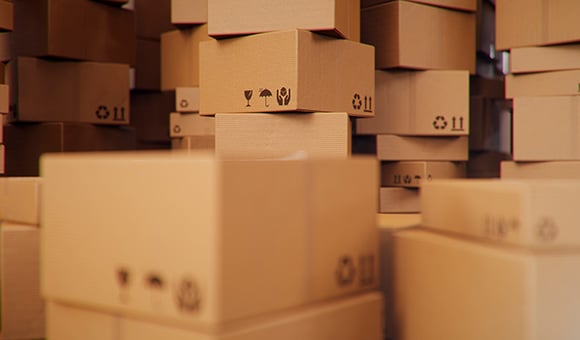At Solenis, it’s our mission to enable our customers’ success through innovative process and water treatment solutions. We’re proud to work toward a world where true sustainability and operational efficiency are delivered and documented more effectively than anyone could imagine.
In the prior blog article, “Aligning Sustainability Strategy to the Voice of the Customer,” we identified six industry priorities that mapped to one or more of the United Nation’s Sustainable Development Goals (UN SDGs):

- Water Usage and Recycling
- Mitigating Climate Change
- Efficient Energy Usage
- Reducing Waste
- Reducing Pollution
- Utilization of Technology
These industry priorities have shaped the company’s investment in developing and providing product and service solutions that help our customers meet their sustainability goals. Below are examples of this focus on sustainability.
Barrier Coatings
The rising demand for sustainable fiber-based packaging, specifically within food and e-commerce, provides an opportunity for producers of biodegradable or recyclable barrier coatings. End consumers show increased interest in sustainability and willingness to pay more for sustainably marketed packaging products.
With these industry trends in mind, Solenis acquired Topchim NV in early 2018. Topchim, based in Belgium, is a regional producer of sustainable barrier coatings. Solenis saw the opportunity to build on Topchim’s technology and leverage it globally to service customers across the world.
Significant R&D effort has gone into developing custom formulations that replace traditional non-sustainable barrier materials, such as polyethylene (PE) and per- and polyfluoroalkyl substances (PFAS), with water-based coatings that deliver resistance to water, moisture, oil and grease, enabling the replacement of plastic packaging with sustainable paper-based packaging. In 2019, all of this hard work paid off when Solenis was recognized as one of 12 winners in the NextGen Cup Challenge, a global innovation competition to reimagine the single-use fiber hot or cold cup. After reviewing nearly 500 submissions, judges awarded our TopScreen™ recyclable and compostable barrier coatings technology as a winner in the Innovative Cup Liners category.
Barrier coatings align with principles of the circular economy and with UN SDG 12 (Responsible Consumption & Production), two major focus areas among Solenis customers.
Paper Colorants
Solenis’ paper colorants are well-positioned in terms of compliance with both Food and Drug Administration (FDA) and REACH toxicological safety standards, as well as other international food-related regulations. Although REACH compliance is a basic requirement for conducting business with European customers, the regulations include environmental protection and human health protection measures.
Pulp Mill Additives
At the macro level, pulp mill additives deliver cost and production efficiencies, which are important to customers. Production efficiencies can lead to more sustainable usage of resources, aligning with the UN SDGs and the circular economy to deliver sustainability value.
The accompanying services that Solenis provides, such as automated control and feed systems and algorithms, monitoring systems and lab and diagnostic expertise, are integral to gaining those cost and production efficiencies.
Retention and Drainage Aids
Solenis’ products and services in this category can lead to reductions in energy usage and increased efficiency in water usage, two areas that are critical to pulp and paper customers. MicroSolSM advanced retention and drainage solutions stand as a great example. MicroSol delivers multiple sustainability benefits to papermakers, including increased productivity, optimized water usage and reduced defects.
These improvements impact UN SDG 6, Clean Water & Sanitation, and SDG 12.
Strength Additives
A majority of Solenis customers, especially those producing packaging and tissue and towel products, are focused on improving strength. Solenis is the market leader in strength chemistry, with the broadest portfolio of synthetic strength additives based on polyvinyl amine (PVAM) and glyoxalated polyacrylamide (GPAM) technology.
Dry strength additives deliver the ability to lightweight packaging, utilize higher percentages of recycled feedstocks, and deliver enhanced machine operating efficiency, and Solenis offers a number of products in this category:

- FusionSM strength and performance technology can contribute to decreases in water usage and reliance on virgin fiber while increasing the use of recycled materials. This connects to SDGs 6 and 12, as well as SDG 13, Climate Action.
- Hercobond™ dry strength additives offer tissue makers a variety of sustainability benefits, including reduction in basis weight, improved speed and efficiency and increased felt life.
- Hercobond™ Plus dry strength additives allow for onsite production, which can lead to improved performance. The building blocks for this technology are shipped to our customers at very high solids, which reduces freight and lowers the carbon footprint. The onsite process produces a truly differentiated microparticle dry strength technology that enables higher performance and delivers sustainability benefits, such as light weighting and increased use of recycled furnish.
- Biobond. Improving the Sustainability of PaperSM Program helps mills producing recycled paperboard that have to deal with a number of challenges arising from the starch content contained in the incoming recovered fiber furnish. The dissolved starch wreaks havoc in the papermaking system, spiking microbial activity, reducing pH, increasing conductivity, interfering with additive performance, reducing strength, and increasing effluent COD levels. Solenis developed the Biobond program to solve these issues. Biobond enables starch from the wastepaper to be preserved and retained in the paper. As a result, yield and strength are improved while eliminating the issues caused by degraded starch in papermaking for a more efficient and sustainable board production.
OnGuard™ Monitoring and Control Solutions
Today, customers are looking for systems-based solutions to improve process efficiency while introducing sustainability gains. At one of our major customers, 35 percent of production facilities are currently equipped with water analysis and control systems, and the company has set a 2030 goal to outfit 100 percent of production facilities with similar technologies.
Through use of its dynamic analysis and control systems, OnGuard monitoring and control solutions deliver value to customers by staying ahead of system failure through real-time microscopic detection, thus requiring less chemical material to treat process conditions. OnGuard helps protect against biofilm buildup, corrosion and biofouling, and it helps manage water characteristics, such as pH, temperature and conductivity. All of these benefits improve operating efficiency and have the potential to optimize water and energy usage, reduce waste and pollution and reduce emissions, contributing to customer sustainability goals.
Scale Inhibitors
Scale buildup on system equipment decreases asset utilization, disrupts production operations and increases energy demand. Solenis’ scale inhibitor treatments deliver substantial sustainable value for customers.
A highlighted case history demonstrates how a Midwestern US ethanol plant used Polystabil™ scale inhibitor to resolve significant evaporator fouling due to calcium oxalate scale. The Solenis antiscalant program reduced scaling rate, saved 6,000 pounds per hour of steam usage and $200,000 of sulfuric acid usage per year. Combining economic value with sustainability benefits is an ideal use of technology.
Biocides
When used in tandem with Solenis’ OnGuard control systems, biocides deliver differentiated, sustainable value for customers. Through dynamic chemical treatment, Solenis is able to optimize the amount of biocide required for various degrees of severity. Applying biocide when biofilm is detected at the microscopic level allows customers to combat biofilm buildup while using less chemical material. This translates to performance, sustainability and cost-reduction benefits.
For customers in the oil and gas industry, use of Solenis’ biocides during hydraulic fracturing activities has the potential to improve yield by reducing bacteria found in water, which can lead to toxic gas byproducts. For pulp and paper customers, use of biocides can improve sheet quality and asset utilization.
Case histories for Biosperse™ Chlorine Stabilizer and Spectrum™ Chlorine Stabilizer, describe the kind of results possible with biocide applications, which include saving 22 million gallons of water per year, reducing chemical costs by $30,000, and reducing corrosion by 70 percent.
The Intersection of Savings and Sustainability
The Solenis ValueAdvantageSM program enables Solenis to identify, document and measure the value we contribute to our customers’ businesses with our chemistry, support, service and expertise. This value could be cost benefits, but it also includes the impact on key sustainability goals. In our next blog in this series, we explore how our customers and Solenis view sustainability from a financial perspective and describe in more detail the ValueAdvantageSM customer program.